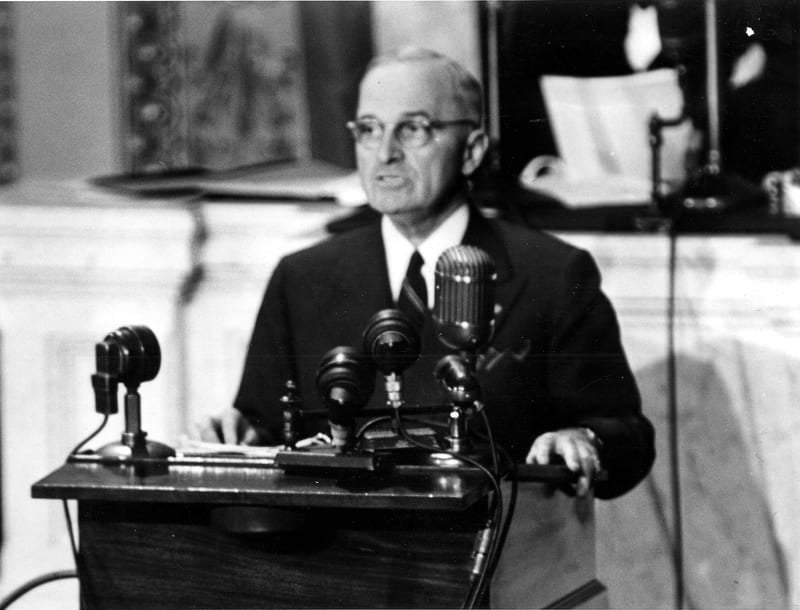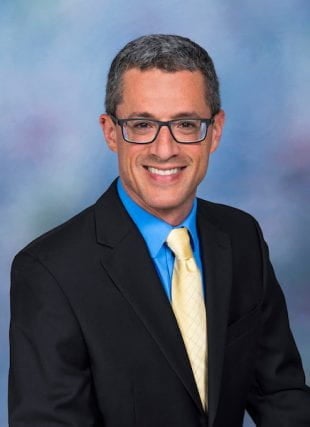Although it was built as a temporary installation in 1996, the once-secret Al Udeid Air Base in Qatar is now the largest U.S. military base in the Middle East. Last year, the Washington Post noted wryly that a planned $1.8 billion “upgrade” to the base would make Al Udeid larger and more permanent even as President Trump signaled a desire to end the so-called “endless wars” in the region.
An upcoming book from Rice University history professor Nathan Citino, “The Forever Empire: The Foundations and Longevity of American Power in the Middle East,” was inspired by his own 2018 visit to Al Udeid. There, on a trip sponsored by the Qatari foreign ministry, Citino saw a base that was no longer in any way temporary.
“It was slowly evolving into a permanent campus with permanent buildings and maybe 10,000 or more U.S. military personnel with workout and recreation facilities and a PX (post exchange) and restaurants — in other words, something that was a manifestation of an increasingly permanent American role,” he said.
How do Americans reconcile this ongoing military presence in the region with U.S. ideals of democratic government? How does a nation “born in an anticolonial revolution against the British government,” as Citino said, itself become an empire two centuries later? And given that the U.S. has become an empire in the Middle East, how does it differ from other imperial powers that also played an important historic role in the region, like Britain, France or the Ottoman Empire?
“It’s a big project, but it’s one that enables me to ask a lot of very interesting questions and to reinterpret a story that's been told before, but in a new way,” Citino said.
Citino recently received a $30,000 Scholar’s Award from the Truman Library Institute in support of continued research for “The Forever Empire.” The project began at the Harry S. Truman Presidential Library and Museum in Independence, Missouri, in 2019, and the grant will allow for continued research at the Truman presidential archives it houses.
The title of Citino’s book mirrors the phrase “the forever wars,” often applied to U.S. military campaigns in Iraq and Afghanistan. But these forever wars, Citino said, have been going on much longer than, say, Operation Desert Storm.
“The argument in the book is that these wars are the product of much older patterns in American relations with the Middle East and go back to the 1940s,” Citino said.
That decade saw a shift in U.S. involvement in the Middle East beginning with the 1947 Truman Doctrine, in which Truman argued Americans were compelled to assist “free peoples” in Greece and Turkey in their struggles against “totalitarian regimes” following World War II. The recognition of the state of Israel in 1948 and increasingly intrusive American interest in the Middle Eastern oil industry amplified U.S. influence in the region.
How did American leaders like President Truman, Secretary of State George Marshall and Senator Arthur Vandenberg persuade members of Congress and the public to accept these expansive and expensive responsibilities abroad?
Citino hopes to answer these questions and more during his upcoming leave from teaching, funded in part by the Truman Library Institute’s grant, as he works on “The Forever Empire.”
As a professor, Citino knows events such as the Truman Doctrine and the creation of a Jewish state in Palestine have often been conceptualized in relation to the emerging Cold War between the U.S. and Soviet Union or narrated as distinct historical episodes.
He hopes his book will tell a new story of U.S. involvement in the region by unifying these formerly discrete pieces into a greater whole — a bigger picture. It’s a more holistic account that comes from thinking about the U.S. as an empire and considering the ways that American elites identified and pursued contradictory interests across the region.
“The idea is to really examine and reinterpret this period, to try to understand why the U.S. has this kind of open-ended and ongoing role in this part of the world and what its implications are not only for the region, but also for the politics of empire at home,” Citino said.
“And that's what historians in my field do,” he said. “We’re not simply discovering new facts or new documents in the archive; we think about, debate and reinterpret the meaning of those events — especially in light of current debates and contemporary developments like the growing American open-ended presence in the Gulf and in the Middle East.”
Meanwhile in Qatar, expansion plans for the Al Udeid Air Base reportedly include family compounds, entertainment centers and more sleeping quarters. The idea, Qatari Defense Minister Khalid bin Mohammed al-Attiyah told the press, is to make this ever-growing base of power even more comfortable for the Americans who occupy it.


